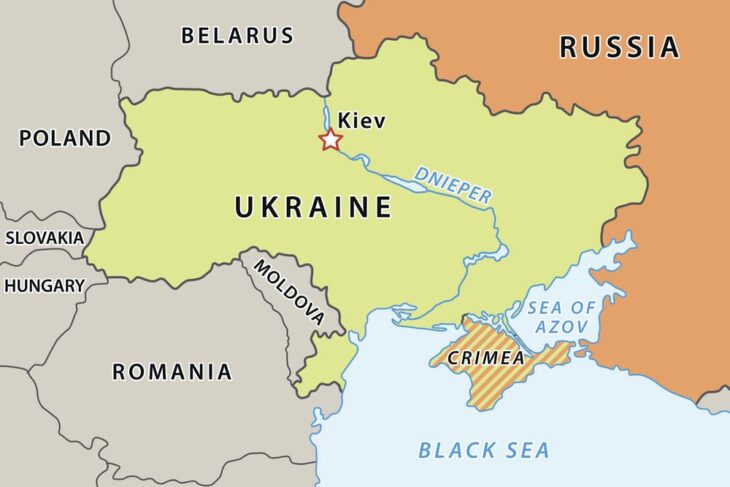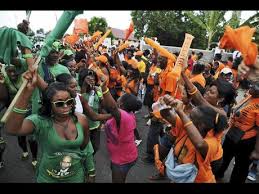This may come as a surprise to those (few) persons who read what I post, but Jamaica actually isn’t doing badly. Now, before you start thinking that I have been smoking something and am somewhere in La La land, you have to understand just what I mean when I say that Jamaica is really not in that bad a position. When I say that I mean from a historical perspective. In terms of the life of a nation, from the birth of it to the fall of it, Jamaica is looking not too shabby for a nation of 55 years.
Let us look at it piece by piece and with analogies and comparisons. Jamaica, in its 77 years of self-rule and 55 years of self-governance has always had a (relatively speaking) peaceful transfer of power. Even the much talked about, highly contested and bloody election of 1980 ended with Michael Manley handing power over to Edward Seaga without calling out the tanks. Note that even the less talked about (but no less hard fought) election of 1976, with the state of emergency, ended with Edward Seaga sitting as an MP and leader of the opposition until his aforementioned victory in 1980.
Now compare that to other newly independent nations, but just to ‘handicap’ myself, compare that to other newly independent former British colonies. Guyana, which was deprived of independence because of British and American fears of Soviet influence with the premier, Cheddi Jagan and his wife, remained under the brutal one-party rule of Forbes Burnham (which was accused of murdering the great Dr Walter Rodney) for some 20 years.
Grenada was run by the madman Eric Gairy after independence in 1974 to the point that a revolution took place to oust him a mere five years later and installed the New JEWEL Movement led by the left-wing Maurice Bishop, who was in turn murdered, and whose killing led to a joint US Caribbean invasion.
Leaving CARICOM one sees the same thing; Zimbabwe in Africa has brutal crackdowns and a virtual one party-state, while in Asia we have Pakistan which lurches from military dictator to military dictator and even Fiji in the South Pacific has tasted the bitter fruit of election results being literally fought over and the military installing itself in executive power.
Looking at it from an economic stance Jamaica — while not performing in a stellar fashion, in historical terms and for the age of the nation — is not in a bad position. Yes, the Jamaican economy isn’t much to talk about, but take a look right next door at Haiti and you will see what economic ruin truly looks like, the picture below shows statistics up to 2007.
These stats are initially sourced from the United Nations. Note the glaring absence of any statistics for anything relating to employment rates and economic activity. That is not saying that no economic activity takes place or that they are all unemployed, far from it. In fact, many Haitians hold jobs (many more than one) and run businesses. The problem is that most of the jobs are low-paying, to put it politely, and most businesses are in the informal sector where they are either struggling to get by or are just not giving anything meaningful to the economy.
Again, I go back to poor Zimbabwe. Their economy has fallen off a cliff since 2000 and a nation that once was the ‘breadbasket’ of the region, coupled with a robust labour force, has an economy so in tatters that they not only had the highest inflation rates at one point in time, they abandoned their currency altogether and now use FX to grease the wheels of the broken-down economy.
Yes, Jamaica got FINSAC’ed; yes, we haven’t had any meaningful growth for some 20-odd years; and yes, we have a worrying rate of unemployment, but as mentioned above things could be so much worse.
We have in our nation an issue of safe seats, or to give them their correct name, garrison seats where we know during each election cycle that if an old, shabby broom was put up as the candidate of the ‘influential’ party it would win by a landslide. But even here, when it comes to incumbents holding onto seats, we are not doing all that badly.
Take everyone’s favourite (until Trump at least) country America. In 2010 during the midterm elections Congress (both houses) had a 15% approval rating, and yet still the House saw a rate of incumbency return of 90% while the Senate saw an incumbency return of 91%. Now, say what you will about the (few) persons who do vote in our local elections, but we have a rate of return nowhere near that (partially because we tend to chop and change back benchers) but also because we have a tendency to throw out (the non-influential) representatives who we feel don’t represent us, as the PNP found out when Mr Arnaldo lost to Mr Alando (confusing, I know).
Another serious issue with Jamaica is political corruption — pork belly politics and corruption in general in all shapes and forms. I mince no words when I say that corruption, along with crime and poverty, are serious millstones around our necks and if we hope to better our nation we have to rid ourselves of corruption. However, for a nation that again has only been policing itself for 55 years, we have some good , albeit currently toothless, anti-corruption agencies and civic groups (which aren’t toothless) which look to stem the tide of corruption in politics.
Again, using a historical example from the US, we have what is probably the most blatant example of political patronage in Tammany Hall founded in 1789 and only dissolved a mere 50 years ago. Tammany Hall was historically corrupt from its inception, and so was its infamous, and notoriously corrupt head, William M. Tweed.
Tammany Hall was The Democratic Party’s political machine in New York, and it ensured that the Democratic Party had both New York City and New York State under lock and key through bribery, voter intimidation, and patronage. Things got so bad that in a nation that was littered with political machines operating in this nature, Tammany Hall came to epitomise and eclipse all of them in the scale and openness of its corruption.
Political corruption was, and still remains such a problem in the US that even the ‘great’ JFK wasn’t immune from scandal. During his election against Nixon his camp was accused (and the evidence does deserve some looking at) of vote buying and rigging that the US$20 was jokingly nicknamed after JFK. Now Jamaica does have a big corruption problem, however, it is my view that it not as entrenched as we make it out to be. It is that we simply watch it and say nothing, so the little that is grafted and gifted (a case of Guinness ain’t all that expensive) adds up.
All in all, what I’m trying to say is that Jamaica, while it has its serious issues (mainly the murder rate, which is mind-boggling), has potential and isn’t in the bad place that we like to believe we are as we are still a young nation with time on our side (unless the sea levels begin to rise), and as pointed out above, things could be a lot worse.
Put another way, we are like a puppy or a kitten. On the face of it, it is useless and probably could be discarded. It urinates all over the place and does some not too bright things, but in the end, with just a little effort one gains a companion for life, one that will try to look out for you, and make you feel better than if you didn’t have it.
Yes, Jamaica sucks, and is irritating. Much like the puppy it just can’t seem to get it right. it is up to us to either show the strength to train the dog (nation and institutions) and enjoy its company, or allow it to starve, abandon and attack us. D.J. Fluker Womens Jersey



